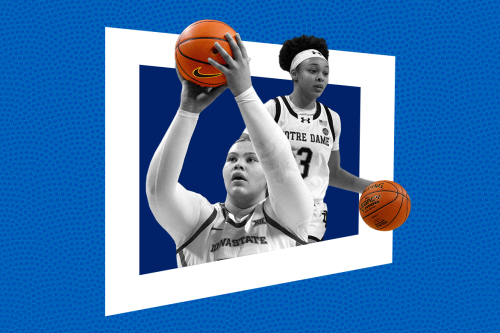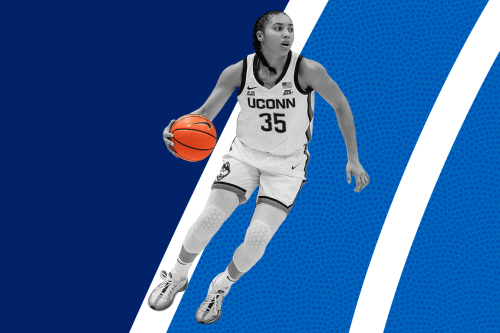3 Lessons LaTanya Sheffield, Track and Field Coach for the Paris Olympics, Taught Her Athlete Daughter
Here’s what Olympic Head Track & FIeld Coach LaTanya Sheffield told her daughter about how to achieve greatness.
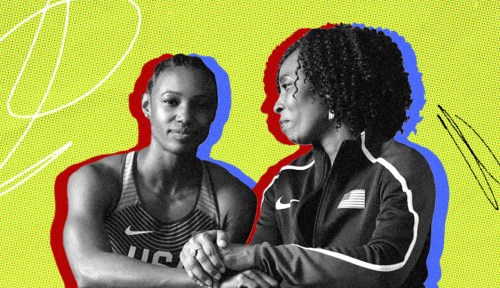
Olympian LaTanya Sheffield has been helping Team USA be the best at track and field since the ’80s. She competed as a 400-meter hurdler in the 1988 Seoul Olympics. She served as a sprints, hurdles, and relays coach at the Rio and Tokyo Olympics, where the track and field team won a combined 58 medals. Now, she’s the women’s head coach for Team USA Track & Field at the 2024 Paris Olympics, and will again work directly with sprinters and hurdlers.
Experts in This Article
world champion sprinter
Sheffield sees her role as “smooth[ing] the pathway for [athletes] to actually show excellence at the most opportune time,” she told NBC, the official broadcast network for the Olympics.
But what does that look like in practice? One athlete who knows firsthand happens to be her daughter, sprinter Jaide Stepter Baynes. As she prepared to compete in the 2021 Olympic trials, Stepter Baynes reflected on the lessons her mother had taught her that helped her get through the challenge of maintaining her physical and mental fitness during COVID-19. They’re lessons any athlete (and anyone striving for greatness) can learn from.
1. Get out of the grey area
The first lesson came about when Stepter Baynes was in college, competing for the University of Southern California. Her freshman year didn’t go as planned, and the following year, the team had a completely new coaching staff. On her first day, the new coach told the team that if they didn’t have marks that would put them in a position to be competitive at the national championships level, they would no longer be on a full-ride scholarship.
Gold Medal Couple Tara Davis-Woodhall and Hunter Woodhall Talk Marriage, Motivation, and Their Next Chapter With Nike

Coach Kara Lawson Wants You to ‘Handle Hard Better’—and Here Are 3 Ways to Do Just That
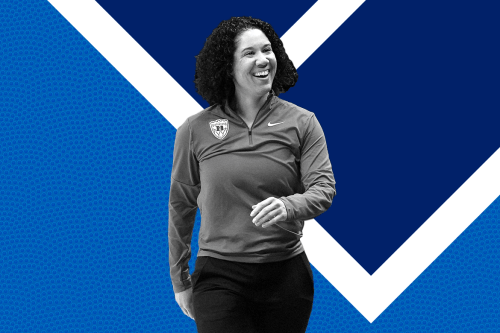
JuJu Watkins Leaves March Madness With ACL Tear—and This Knee Injury Is More Common Than You Think
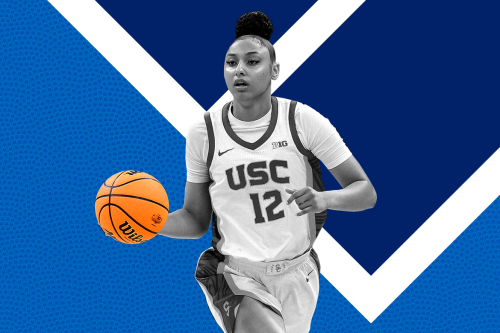
“I freaked out and I called my mom, looking for mom. And I think coach mom stepped in and she was like, ‘Well hey, get out of the grey area, and go be an All-American, then.'” The conversation was direct, but it was the kick Stepter Baynes needed, she says. That year she made it to the national championships. Even though she’s no longer a collegiate athlete, getting out of the grey area—and knowing that Sheffield had no doubt she could—stays with her and is a source of motivation.
2. Belong in the spaces you put yourself in
The second lesson Stepter Baynes says has stuck with her over the years is: “You belong in this space. If you put yourself in this space, you belong there, and make it so that nobody can ever doubt you. No one can ever question you because your stuff is so much on lock.” This lesson definitely applies to being an athlete, “but it also works for everyday life as well,” she says.
3. Ask yourself: Why not me?
The final lesson that’s made Stepter Baynes who she is today, and has prepared her for so much of her competitive life: “Why not me?” This mindset has helped her eliminate the doubt in others’ minds about her performance, but it’s also eliminated any doubt she may have about herself as an athlete.
“That has lent to my own confidence and my own approach to different things in every walk of life,” she says.
Sign Up for Our Daily Newsletter
Get all the latest in wellness, trends, food, fitness, beauty, and more delivered right to your inbox.
Got it, you've been added to our email list.

